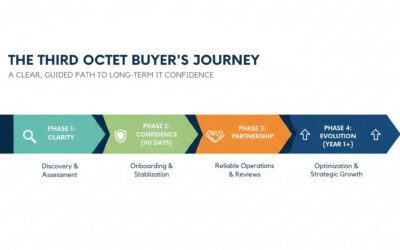By CYNTHIA MACNEIL – Contributor
Switching to a digital workspace might help your business sidestep the chip shortage and extend asset life.
As you may have heard, we’re experiencing a worldwide computer chip shortage. The scarcity of semiconductors is disrupting pretty much any industry you can name. Auto manufacturing, telecommunications, personal computers, phones, and other electronics are significantly affected. In addition, market analysts predict moderate to severe supply issues will persist well into Q2 of next year, possibly into 2023. Keep reading to learn why this shortage is yet another reason to finally migrate from a traditional physical workspace to a digital one.
How did this chip shortage get so severe?
Let’s back up for a moment. Since the covid-19 pandemic began, businesses and consumers have caused a surge in demand for chip-reliant tech. But this isn’t the only factor in creating a global supply scramble. Contrary to what you might imagine, it’s not just lockdowns driving demand for gadgets and laptops. To reach the point that business analysts are dubbing the situation “chipageddon,” it takes a maelstrom of geopolitics, 5G rollouts, and power outages shutting down several semiconductor plants. Add to the mix that it takes a considerable lead time to build new chip fabrication plants (think upwards of two years), and it’s easy to see how the shortage has become such a dilemma.
Extending asset life
An effective way to counter this chip shortage is to extend the lifespan of the assets you already have over buying new ones. One software solution that’s especially effective in helping you work with what you’ve got is IGEL OS. Built on a secure Linux foundation, IGEL OS is a lightweight, modular endpoint operating system customized for cloud and digital workspaces, including Citrix Workspace, Microsoft Azure Virtual Desktop, VMware, and Amazon Workspaces. It can repurpose any 32-bit CPU device, including desktop PCs, laptops, tablets, or competitor thin clients and transform it into a software-defined endpoint.
Learn more about Modern Endpoints
Keeping business moving in a timely, predictable way
No one wants to face stakeholders and explain that the project has fallen behind because mission-critical technology didn’t ship on time or, worse yet, is on backorder. Digital workspaces are known for keeping teams connected and moving forward effectively in the so-called new normal. They also increase reliability and weed out any unnecessary hardware upgrades, replacements and purchases.
Securing your BYOD policy
While navigating the current computer chip shortage, we’re also contending with the growing bring your own device, aka, ‘BYOD’ trend. The increasing number of employees using their personal phones and devices to access organizational networks brings up important security and confidentiality considerations. Though many enterprises have moved away from company-issued devices, BYOD can still be viewed as more of a risk than a savings opportunity. However, it’s possible to enjoy lower hardware costs as long as there is a well-defined BYOD security policy in place. For example, suppose your team uses the IGEL Workspace along with its UD Pocket. It’s a tiny, temporary USB drive that secures remote work from any employee or contractor-owned device and creates a stable connection to virtual desktops and digital workspaces. Ultimately, your team gets a superior user experience—free from painstaking desktop refreshes and rewarded with faster, more consistent load times and performance.
Join Third Octet CEO Matthew Metelsky as he deploys IGEL OS on Lenovo’s ThinkCentre M625Q and pairs it with Lenovo’s ThinkCentre Tiny-in-One (TIO) 22″ monitor.





0 Comments